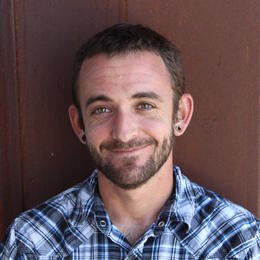
Steve works to engage people in conservation action. Through bird survey, policy action, hands-on habitat work, and partnerships, he strives to build an Audubon network that is larger, more representative of the communities in which we work, and more capable of making a significant, positive impact for people, habitat, birds, and other wildlife.
As a science communicator and experienced field biologist, he works to provide resources and experiences that increase awareness and understanding of current science, threats, policy, and best practices relevant to bird and habitat conservation in the Southwest. Specific projects include managing the Western Rivers Brewers' Council, assisting with Arizona's Important Bird Areas program, providing support to Southwest policy initiatives, building and maintaining working relationships with Audubon Chapters in Arizona and New Mexico, co-managing our annual Western Yellow-billed Cuckoo survey effort, and working with our policy and science teams to develop meaningful and impactful conservation action opportunities.
In this work, he aims to center the expressed interests of those most impacted by environmental issues, collaborate with communities and partners that have been historically excluded by Audubon and other environmental organizations, and understand and be responsive to individual communities’ cultures, needs, views, expectations, and power over their own goals and outcomes. He understands that his privileges and lived experience leave him with gaps in awareness that affect his ability to most equitably and effectively address environmental issues and he values the education and perspective that working with diverse communities and partners can provide.
Steve earned a Bachelor's of Science in Conservation Biology and Ecological Sustainability from Arizona State University. When he's not looking up to find birds, he's looking down to find snakes.